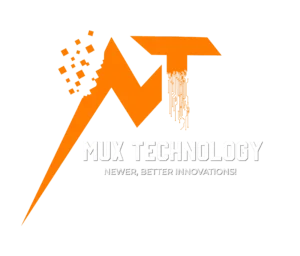Navigating the dynamic realm of business, the phrases “businessman” and” entrepreneur” are frequently employed interchangeably, yet their roles and tendencies range considerably. Delving into the nuances reveals a charming tapestry of disparities that shape their journeys and affect their ventures. Let’s unravel the 10 key differences between businessmen and entrepreneurs.
1. Mindset and Approach
At the centre, business people tend to follow set-up fashions and conventional strategies, prioritizing stability and predictability. On the flip side, marketers thrive on innovation, toughen the status quo, and embrace change with an eye fixed on transformative exchange.
2. Risk-Taking
Entrepreneurs are renowned for their dangerous appetites, venturing into uncharted territories to seek opportunities. Business people, while no longer averse to danger, normally choose calculated and incremental steps, prioritizing balance over bold leaps.
3. Goal Orientation
Business people are frequently aware of short-term goals driven by income margins and financial stability. Entrepreneurs are more willing to pursue visionary desires, aiming for lengthy-term effects and societal trade through their ventures.
4. Innovation and Adaptability
Entrepreneurs thrive on innovation, continuously adapting to changing landscapes. Business people may additionally prioritize balance, often resisting alternate, which could prevent their capability to navigate evolving marketplace dynamics.
5. Financial Management
While each prioritizes economic fulfilment, business people regularly adopt conservative economic management practices, emphasizing regular booms. Entrepreneurs, then again, might also leverage riskier financial techniques to fuel innovation and expansion.
6. Networking and Relationships
Entrepreneurs excel at building diverse networks and leveraging relationships for mutual growth. Business people, while valuing connections, can also recognize the greater value of installed networks within their industry.
7. Leadership Style
Business people regularly show off a hierarchical and based leadership style, aligning with traditional company systems. Entrepreneurs include a more dynamic and adaptable management method, fostering creativity and collaboration.
8. Response to Failure
Entrepreneurs view failure as a stepping stone to fulfillment, gaining knowledge of, and adapting to setbacks. Business people can be more risk-averse, potentially viewing failure as a setback in preference to an opportunity for growth.
9. Impact on the Economy
Entrepreneurs are catalysts for financial alternatives, driving innovation and job creation. Business people make contributions to economic stability but might not generate the same degree of transformative effect as entrepreneurs.
10. Work-Life Balance
Achieving paintings-existence balance is a nuanced pursuit for both companies. Business people might also adhere to more conventional painting hours, while marketers regularly blur the lines between work and personal lifestyles, driven by their passion and dedication.
11. Motivation and Passion
Entrepreneurs are frequently fueled by using a deep-seated passion for their vision, while businessmen may be motivated using monetary success and balance. The source of motivation profoundly affects their method and perseverance.
12. Decision-Making Process
Business people may additionally comply with a structured choice-making process, counting on established protocols. Entrepreneurs, in comparison, often make choices hastily, counting on intuition and adaptability to navigate uncertainty.
13. Legacy Building
Entrepreneurs aspire to go away with an enduring legacy beyond economic achievement, aiming for societal effect and a transformative alternative. Business people may pay more attention to the legacy of their enterprise as a strong entity within its industry.
Conclusion
In the difficult tapestry of enterprise, the differences between business people and marketers are vital for information on the diverse tactics that drive success. Both roles contribute uniquely to the enterprise panorama, presenting treasured insights into innovation, stability, and the dynamic forces shaping our economic destiny. As global business continues to conform, acknowledging and embracing these variations can pave the way for a more complete and collaborative future.








